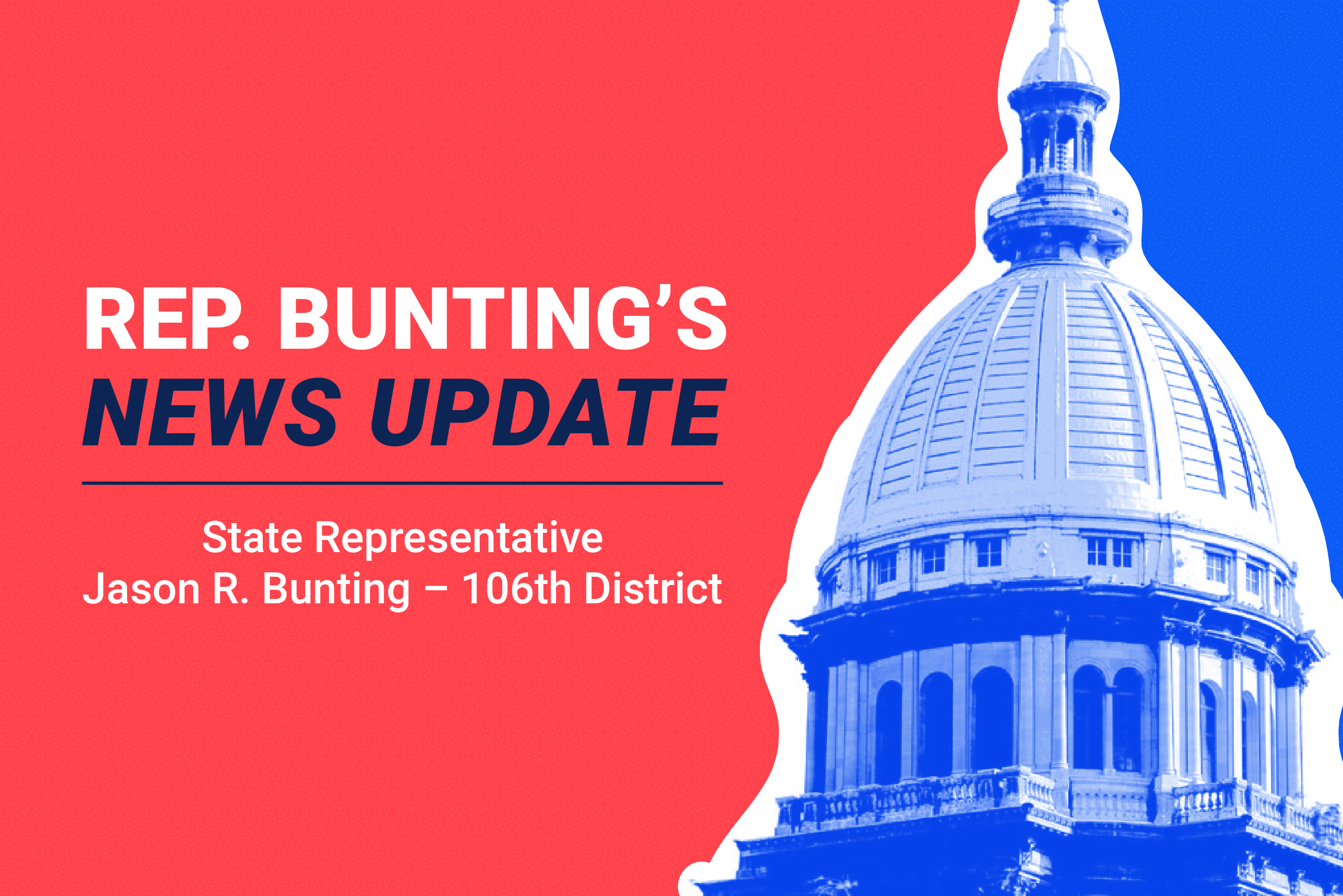In this issue:
- Concerns growing about state budget deficit
- New nuclear reactor possible in central Illinois
- January is Radon Action Month
- House returns to Springfield next week
Concerns growing about state budget deficit
The Governor’s Office of Management and Budget has projected that Illinois will have a $3.2 billion budget shortfall in the fiscal year which starts on July 1.
This year’s revenues are flowing in at a barely adequate rate: just keeping up with expenditures. But this fiscal year is now half over, and the next year presents us with some new challenges such as mandated increases in pension spending, Medicaid spending and the costs of pay and benefits for state employees and others whose compensation is tied to state appropriations.
Supporters of the current year’s budget were able to declare it “balanced” only because of tax increases which they passed in the middle of the night on the last day of session in May 2024. Illinoisans should be on the lookout for similar increases this spring in order to close the gap in the upcoming year’s budget. The state Constitution requires the budget to be balanced, which means that closing this budget gap could mean significant spending cuts or more tax increases in a state which is already among the nation’s highest-taxed.
New nuclear reactor possible in central Illinois
Demand for electricity in Illinois is on the rise, and Constellation Energy, which owns a nuclear power plant just south of Bloomington has informed local officials that it is seeking support for an application to build a second reactor at their current site.
Most of Illinois’ nuclear plants have two reactors, which allows them to generate as much as 2000 megawatts of electricity, but the Clinton, Illinois, facility only has one, even though it was designed with future construction of a second reactor in mind. A second reactor on an existing site is much easier and safer than constructing a whole new site.
The proposal calls for a small, modular reactor, which is made with new technology that is much safer. President Trump’s administration is expected to be much more favorable to new energy developments such as nuclear, but even so, construction is a long process. Even with full approval of the facility from everyone involved, construction is not likely to begin before 2026.
January is Radon Action Month
The American Lung Association has designated January as Radon Action Month to raise awareness about a gas that it calls the “silent killer.”
Radon is a radioactive gas that rises up out of the bedrock that lies beneath the entire state of Illinois. Fortunately, we have the technology to test the air in homes and other buildings for radon. Every year at this time the Illinois Emergency Management Agency launches its Radon Awareness Campaign to help Illinoisans understand the risk and encourage building testing.
IEMA encourages homeowners to connect with a licensed professional to test their home for radon. Click here to find the agency’s list of radon testing professionals throughout the state.
House returns to Springfield next week
The House will be back in session in Springfield next week, kicking off a stretch where we are in session for eight of the next nine weeks. Over the past couple of weeks since the swearing-in ceremony on January 8 members have filed hundreds of bills and committees have started to form to review them. Most of February will be spent in committee hearings, with bills starting to be heard on the floor in March. Governor Pritzker will offer his seventh State of the State and Budget Address on February 19.
Our current bill backlog
When a vendor provides the state with goods and services, they submit the bill to the Illinois Comptroller for payment. The Comptroller processes the paperwork and pays the bill when funds are available in the state’s checking account. Currently the total amount of unpaid bills is $1,874,416,446. This figure changes daily. Last year at this time the state had $1.1 billion in bills awaiting payment. This only includes bills submitted to the Comptroller for payment, not unfunded debts like the state’s pension liability, which is well over $100 billion.
Illinois headlines
Applications being accepted for Illinois Conservation Foundation scholarship
Illinois’ tax season start date announced by state officials
How to navigate snow and ice safely in Illinois winters
